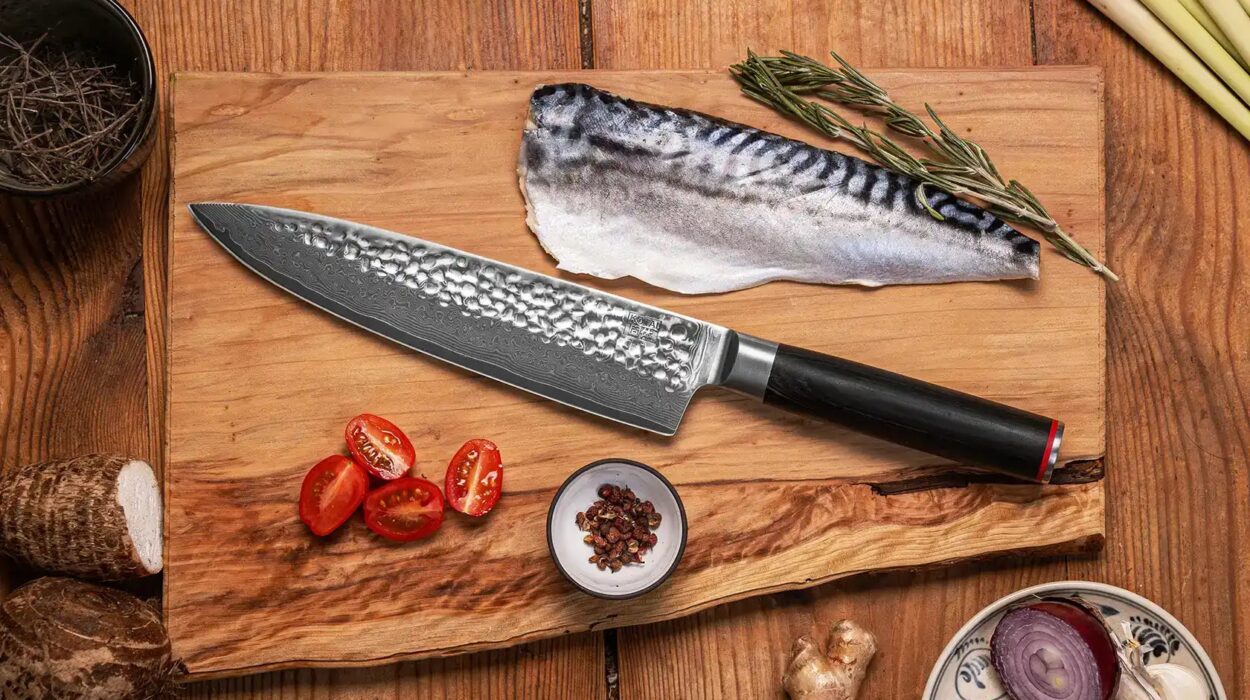In the world of culinary arts, having the right tools is essential. One such tool that stands out for its beauty and performance is the professional Damascus knife. Renowned for their exquisite craftsmanship and superior functionality, these knives have become a staple for chefs and cooking enthusiasts alike.
Professional Damascus knives feature a unique blend of style and performance, making them a must-have for every kitchen. The intricate patterns on the blades not only add aesthetic appeal but also symbolize the rich history and tradition behind their making.

1. The Craftsmanship Behind Damascus Knives
Damascus steel knives are known for their distinctive wavy patterns, created by forging numerous layers of steel together. This process not only enhances the knife’s strength but also its cutting efficiency. The artistry involved in crafting professional Damascus knives makes each piece unique, a true testament to skilled craftsmanship.
1.1 The History of Damascus Steel
Originating from ancient Middle Eastern regions, Damascus steel was prized for its protective properties and sharp edges. To learn more about the history of Damascus steel, visit this insightful article from Medievalware.
2. Benefits of Using Professional Damascus Knives
Culinary professionals prefer Damascus knives for several reasons:
- **Sharpness and Edge Retention:** These knives maintain their sharpness over extended use, reducing the frequency of sharpening.
- **Durability:** The forging process results in a tough blade that resists wear and tear.
- **Balanced Weight:** The knife’s weight distribution enhances comfort during prolonged use.
2.1 Comparing Damascus Knives with Regular Knives
Unlike regular kitchen knives, Damascus knives combine form and function, offering both aesthetic value and practicality. Their superior edge retention and unique design make them a favorite among culinary experts.
3. Selecting the Right Damascus Knife for You
Choosing the right knife depends on your specific needs:
- For chopping vegetables, a Santoku or Nakiri knife could be ideal.
- For slicing meat, a chef’s knife or carving knife is recommended.
- Consider a paring knife for intricate tasks.
3.1 Understanding Knife Languages
Familiarizing yourself with terms like bolster, tang, and grind can help make informed decisions. Knowing these terms can ensure you’re buying a knife that meets your culinary needs.
4. Maintaining Your Professional Damascus Knives
Proper care is vital for preserving the beauty and functionality of your knives:
- **Regular Honing:** Helps maintain the edge alignment without removing metal.
- **Proper Cleaning:** Avoid dishwashers; hand wash with mild soap and dry immediately.
- **Storage:** Store in a knife block or on a magnetic strip to prevent dulling.
4.1 When to Sharpen Your Knife
Recognizing the signs of dullness, such as reduced cutting efficiency, can indicate when its time to sharpen.
5. Integrating Damascus Knives into Your Culinary Repertoire
Understanding how to effectively use Damascus knives can elevate your culinary skills. Whether you are a home cook or a professional chef, these knives can assist in precision cutting, enhancing your cooking experience.
5.1 Techniques and Tips
Learning proper grip techniques and cutting styles can significantly improve your results. Check out our insights on preparing various meats and dishes:
- For beef, see this guide.
- For lamb, refer to this article.

Frequently Asked Questions
Do Damascus knives require special maintenance?
Yes, these knives need regular honing and proper cleaning to maintain their edge and beauty.
What makes Damascus knives unique?
Their unique patterning, strong blade, and superior sharpness make them stand out.
Are Damascus knives worth the investment?
For professionals and enthusiasts, their durability and performance make them a valuable addition to any kitchen.
In conclusion, professional Damascus knives are more than just a kitchen tool. They are an investment in quality, durability, and artistry. Whether you’re a budding cook or an experienced chef, these knives can be a valuable addition to your kitchen arsenal. For further details on knife origins, consider exploring this informative resource on Serious Eats.
This article contains affiliate links. We may earn a commission at no extra cost to you.


